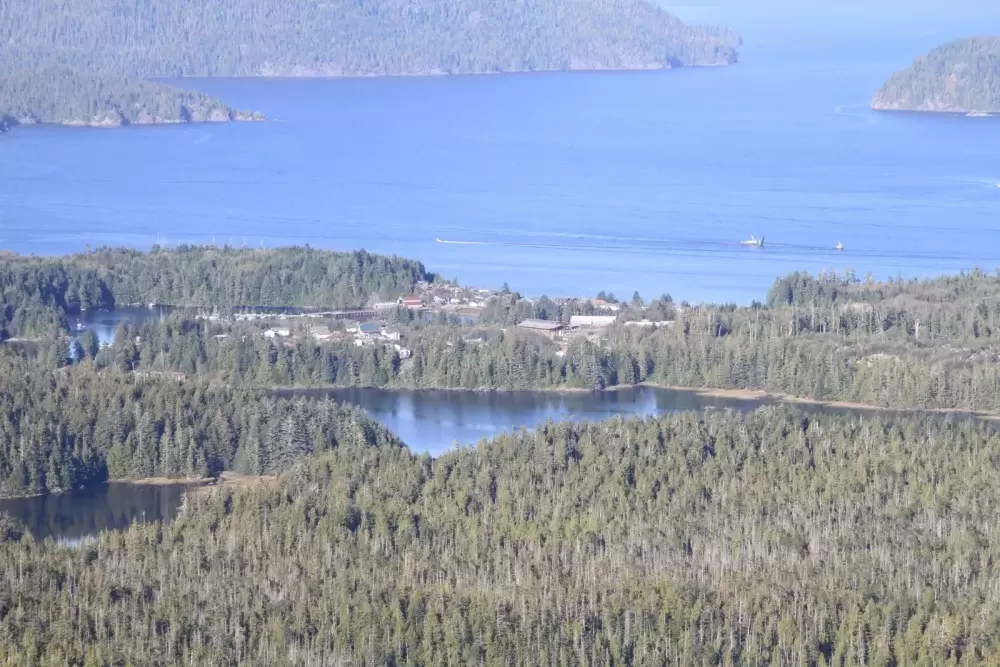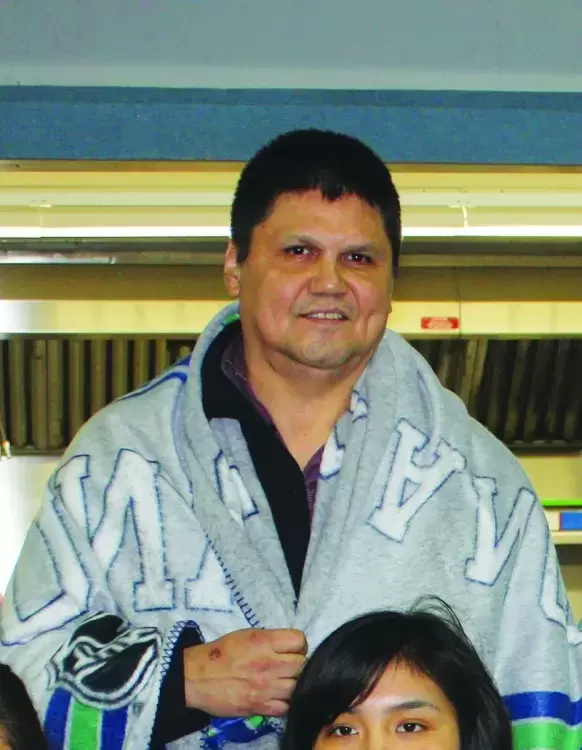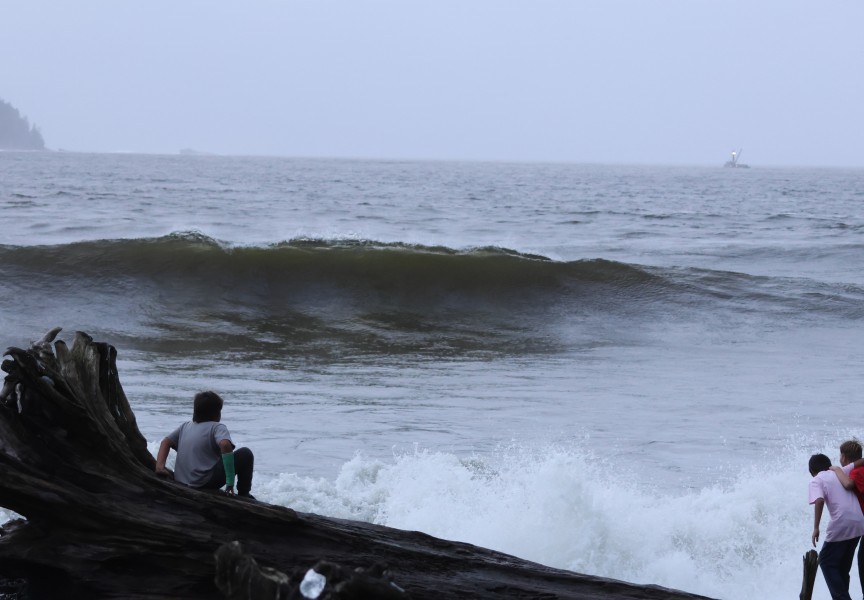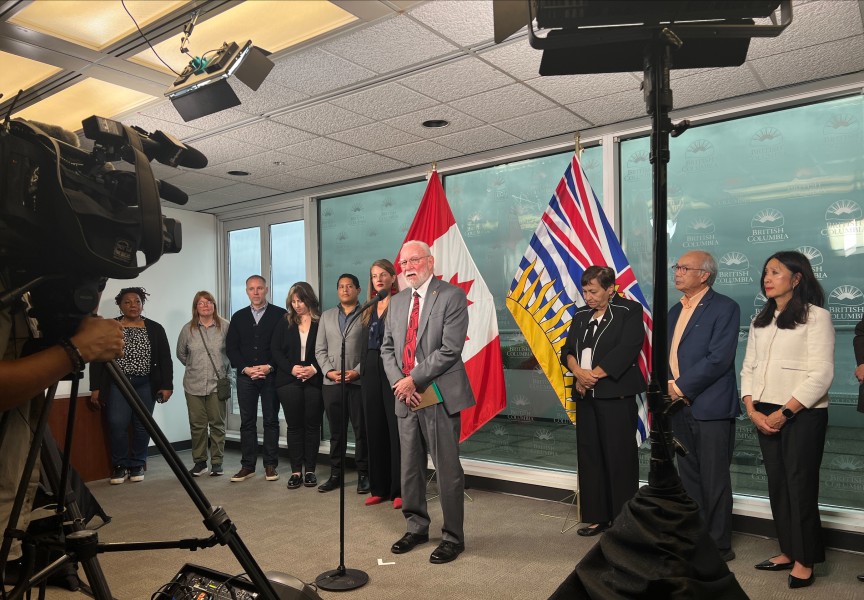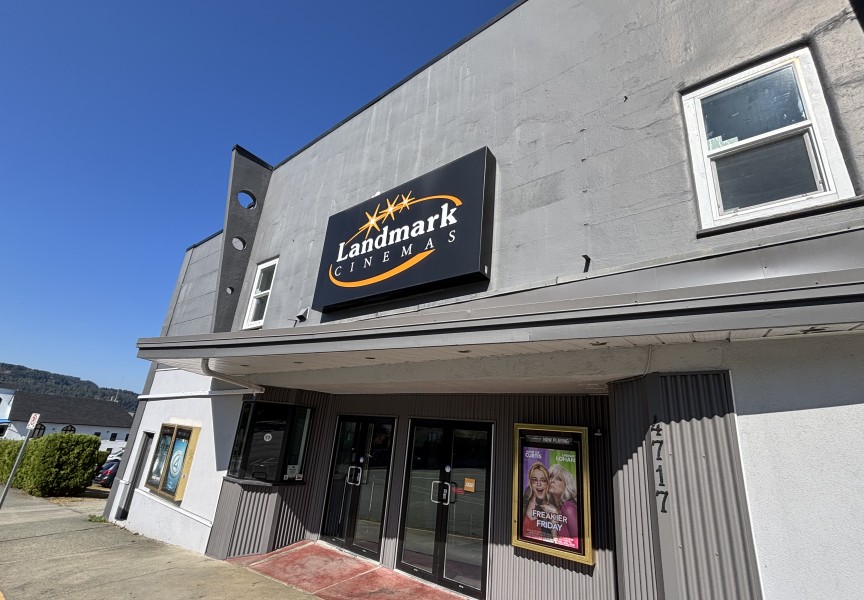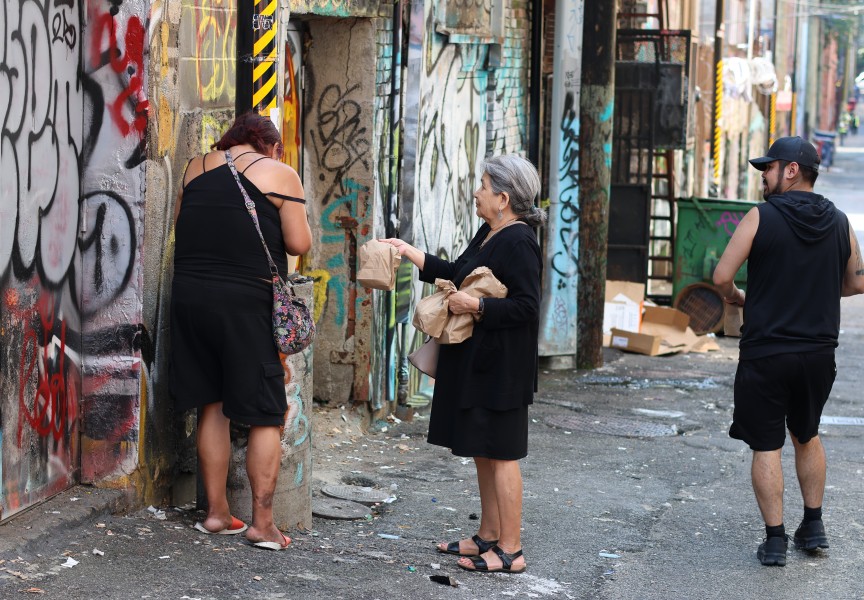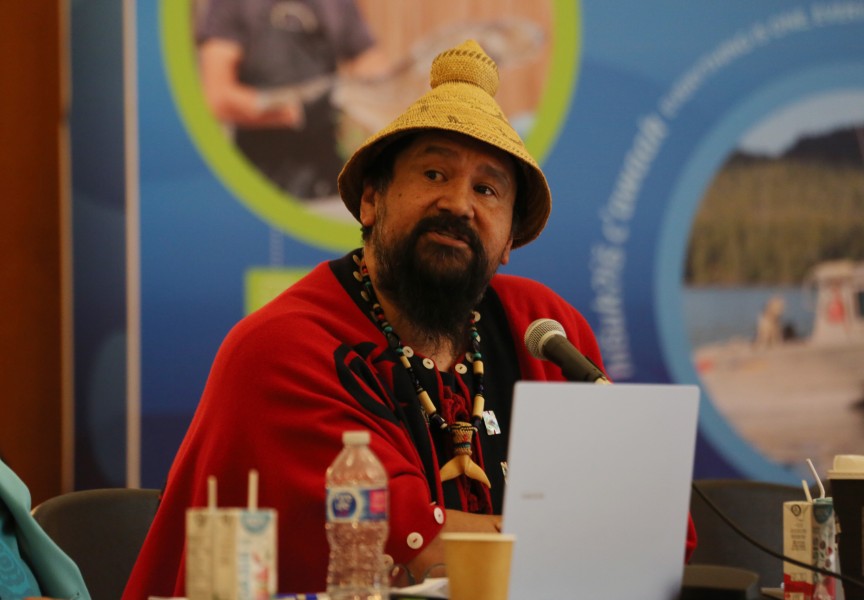As Jenzen Thomas sat in a circle with nine other men from Ahousaht First Nation, he thought he was apart of just another support group.
Gathered together for the first time on May 7, the group’s facilitators explained they would be focusing on exploring pathways to stop sexualized violence in their community.
The men sat quietly, nervously looking around at each other, Thomas recalled.
But nobody walked away.
“It was very powerful,” said Thomas. “I can’t stop praying now. I can’t stop praying for no [more] sexual abuse.”
Sexual violence is not only an issue that plagues Ahousaht, but all First Nations communities across Canada, said Tom Paul, Chah Chum Hii Yup Tiic Mis drug and alcohol councillor.
It is a learned behaviour that stems from the traumas of colonization and residential schools, he added. After being victimized by sexual abuse in residential schools, Paul said it started a cycle of people victimizing each other.
“And then it came into our communities and was passed on,” said Paul. “It’s a vicious cycle that needs to be stopped … we’re so great at talking about what happened to us from the colonizer, but we don't want to talk about what we’ve [done] to our woman and our children.”
Indigenous women are physically assaulted, sexually assaulted, or robbed almost three times as often as non-Indigenous women, according to the 2017 National Inquiry into Missing and Murdered Indigenous Women and Girls interim report.
And yet, “it’s not talked about,” said Paul.
Deciding to grab the torch, Paul applied for funding through the Maaqutusiis Hahoulthee Stewardship Society (MHSS) to form a men’s group to address the topic.
Through his role as a councillor, he asked those he was already working with to join.
Although John Swift, a consultant for Makwag Consulting, came to the table as a facilitator with over 28 years of experience exploring Indigenous pathways to health and wellness, he said he felt as lost as the other men.
In the beginning, the group was “unfocused,” he said.
“We were trying to create knowledge around a subject matter that none of us had really discussed as a group before,” he said. “It’s a dark subject and no one wants to talk about it – but it needs to be talked about.”
Swift said his involvement was a “cultural responsibility.”
“If we're not actively working to stop this in our communities, then we’re passively saying that it's OK,” he said. “As men, we really have to come up with localized strategies of dealing with sexualized violence and provide safe, non-judgemental, empathetic spaces where men can unpack this stuff.”
Over three days, the group of men participated in talking circles, sweat lodge ceremonies and cold-water bathing, called oosimtch, at the Aauunuuk Lodge, in their traditional territory on Flores Island.
“[They] decided to align and start working on this from a community-based level,” said Swift. “There is magic that happens when you work with culture.”
Each morning at 6 a.m., the men went down to the beach to plunge into the ocean and pray to the creator.
“Watch over our people,” Thomas would ask. “Watch over our ladies – our wives, our sisters, our mothers, our grandmothers and granddaughters – they’re our world. They carried us for nine months.”
For Ahousaht First Nation hereditary chief, Richard George, whose traditional name is Hasheukumiss, the men’s retreat signals real progress and is the “only way to move forward as a community and as a village.”
“This is a real ongoing issue,” he said “This has been going on for decades … there’s no better place to [confront] it then right at home.”
Acknowledging the importance of the #MeToo Movement, Hasheukumiss said that MHSS is committed to offering continued financial support towards Paul’s efforts.
“It’s not about shaming or blaming,” Paul said. “It’s about creating a safe space so men can work towards healing.”
When Paul invited Alphonse Little to participate, the 56-year-old considered it another opportunity to continue on his own path toward healing.
“I just knew it was cultural, so I was game,” he said.
Little’s journey began one year ago when his wife, Sherri, pleaded with Ahousaht First Nation elected councillor Curtis Dick to get him into a six-week men’s cultural retreat at Mahtsquiat, on Meares Island.
At the time, Little was heavily drinking and using drugs. Sherri feared for his life.
While his trauma hasn’t simply vanished, he said he now has tools to deal with it and recently celebrated one year of sobriety.
“I’ve never been more proud of myself,” he said. “I can look in the mirror now and say ‘I love you.’ I couldn’t say that before.”
Little said he turned to the bottle as a coping mechanism, unable to face the abuse and violence he suffered as a child.
“I still have tough times,” he said. “But I talk about it now, whereas before I didn’t want to talk about it – I drank.”
Sexualized violence tends to hide behind closed doors, he said.
“It’s happening more than people like to say it does,” said Little. “And It needs to be addressed … it’s a subject that a lot of people are hurting from.”
Only when you’re honest with yourself and confront your past are you able to “begin letting stuff go,” said Little.
“If you hold on to something, it’s going to haunt you,” he added. “Put it out there and leave it out there.”
Accountability is built when you hold sexualized violence out in the light and let everybody gather around it, said Swift. Because it’s no longer a secret, he added.
Like Little, Billy George has been on a spiritual journey of his own for the past eight months.
“[The men’s group] is a place where someone can go and feel safe and be open about anything that’s happened to them in their life,” he said. “To see and hear stories that you normally don’t hear men talking about is something that really gave me strength and helps me to move forward.”
Near the end of the retreat which coincided with Mother’s Day, the group appointed Thomas as the leader and gifted him a drum.
If he got tired, the group assured him he could hand the drum off to another member.
It’s the first drum Thomas had ever been gifted, which was a “real honour,” he said. He was also tasked with naming the group and designing the drum.
The word “transforming” comes to mind, he said. “Transforming from hurt to love.”
As a community, Ahousaht had to start somewhere, said Paul. And while the weekend marked a necessary first-step, it’s only the beginning.
Paul is now planning a second men’s retreat. He has been individually asking men to participate and already has ten lined-up.
Once he has the funding secured, it will run over another weekend in Ahousaht.
“In order to heal, we need to go through the fire,” he said. “We need to go through that pain so that these vicious cycles break.”

